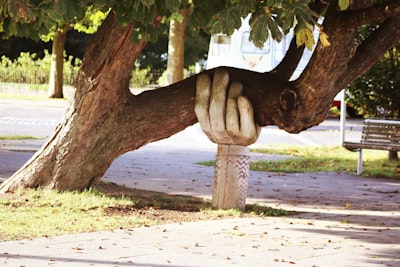Dating challenges can be particularly difficult for adults with ADHD. Forgetfulness and impulsivity symptoms can complicate relationships, making it essential to approach dating with practical expectations, communication, and self-care. Time management and organization, compassion and patience, and seeking support and treatment should be prioritized. Let’s explore eight tips for adults with ADHD in relationships and dating.
Tip 1: Set Realistic Expectations

When it comes to relationships and dating, it’s important for adults with ADHD to set realistic expectations. Living with ADHD can pose unique challenges, but with the right approach, these relationships can be fulfilling and successful. Here are some tips to help you navigate the world of dating and relationships:
1. Educate yourself
Take the time to learn about ADHD and how it affects relationships. Understanding the symptoms and challenges can help you parse through what is due to ADHD and what is simply a personality trait.
2. Communicate openly
Have open conversations about ADHD with your partner. It shouldn’t be judged or stigmatized, but rather seen as a way of being that is just one aspect of a person. Be honest about your experiences and encourage your partner to share their perspective as well.
3. Be patient
Remember that impulsivity and inattention are common symptoms of ADHD. Your partner may struggle with forgetfulness, difficulty focusing, and other challenges. Be patient and understanding, and give them the space and time they need.
4. Focus on the positives
People with ADHD can bring unique strengths to a relationship, such as creativity, energy, and spontaneity. Focus on these positive aspects and appreciate the excitement and energy that your partner brings to the relationship.
5. Set boundaries
While it’s important to be understanding, it’s also essential to set boundaries. Communicate your needs and expectations clearly, and work together to find a balance that works for both of you. Remember that relationships require effort and compromise from both partners.
6. Take care of yourself
It’s important to prioritize your own well-being. Make sure you have a support system in place and take time for self-care. This will help you maintain a healthy perspective and ensure that you have the emotional energy to invest in your relationship.
7. Stay hopeful and optimistic
While it’s important to be realistic, it’s also important to stay hopeful and optimistic. With patience, understanding, and the right strategies, relationships with ADHD can thrive. Remember that every relationship is unique, and with effort and willingness to work together, you can build a strong and fulfilling partnership.
Relationships and dating can be a challenge for adults with ADHD, but with the right approach, they can also be rewarding and successful. By educating yourself, setting realistic expectations, and communicating openly with your partner, you can navigate the challenges of ADHD and build a strong and fulfilling relationship. Stay hopeful, take care of yourself, and remember that love and understanding can overcome any obstacles.
Tip 2: Communication Is Key

Good communication is essential for any successful relationship, and it becomes even more crucial when you are dating or in a relationship with someone who has ADHD. ADHD symptoms, such as inattention, forgetfulness, impulsivity, and disorganization, can create challenges in communication and understanding. However, with the right strategies and approach, you can foster healthy and effective communication in your relationship.
1. Be Open and Honest
It is important to be open and honest with your partner about your ADHD and how it affects your communication and relationship. Share your challenges, needs, and concerns, and encourage your partner to do the same. Communication is the key to understanding and finding solutions together.
2. Active Listening
Practice active listening by giving your full attention to your partner when they are speaking. Avoid distractions, maintain eye contact, and show genuine interest in what they are saying. Reflect back what they have said to ensure understanding and ask clarifying questions when needed.
3. Use Non-Verbal Cues
Non-verbal cues, such as body language and tone of voice, can convey important emotions and meanings. Pay attention to these cues to better understand your partner’s feelings and intentions. Likewise, make an effort to communicate your own emotions through non-verbal cues to enhance understanding.
4. Healthy Conflict Resolution
Disagreements and conflicts are a part of any relationship, but it is important to approach them in a healthy and constructive manner. Avoid impulsively reacting or becoming defensive, and instead, take time to cool off before discussing the issue. Practice active listening, empathy, and finding compromises that satisfy both partners.
5. Practice Patience
Patience is a virtue that is especially important when communicating with someone with ADHD. Understand that their symptoms may affect their ability to listen, remember, or stay organized. Be patient with their forgetfulness, impulsivity, or distractability and offer gentle reminders and support.
6. Create Structure and Routines
Establishing structure and routines can help individuals with ADHD stay organized and reduce communication and relationship challenges. Set up calendars, to-do lists, and reminders for important tasks and events. This can help both partners stay on track and manage responsibilities more effectively.
7. Be Mindful of Timing and Environment
Consider the timing and environment when engaging in important conversations. Choose a time when both of you are calm and focused, and find a quiet and comfortable space where you can have uninterrupted discussions. This will enhance communication and allow for more meaningful and productive conversations.
Communication is a two-way street, and both partners play a role in fostering a healthy and open dialogue. Be patient, understanding, and willing to work together to find effective communication strategies that meet the unique needs of your relationship. With the right approach, communication can be a strength in your relationship, bringing you closer together and creating a solid foundation for a lasting and fulfilling partnership.
Tip 3: Self-Awareness And Self-Care
When it comes to dating and maintaining relationships, self-awareness and self-care are crucial for adults with ADHD. Recognizing and understanding the impact of ADHD on your own behavior and emotions is the first step in building healthier and more fulfilling connections with others.
1. Acknowledge the Role of ADHD
Take the time to educate yourself about ADHD and its symptoms. Understanding how ADHD influences your thoughts, emotions, and behaviors can help you make sense of past relationship challenges and pave the way for more effective communication and problem-solving.
2. Practice Self-Reflection
Take a moment to reflect on your own ADHD symptoms and how they may affect your relationships. Are you easily distracted or forgetful? Do you struggle with time management or impulsivity? By identifying your personal challenges, you can better understand how they may impact your partner and take steps to manage them.
3. Prioritize Self-Care
Taking care of your own well-being is essential in maintaining healthy relationships. Make sure to prioritize self-care activities that help manage your ADHD symptoms, such as exercise, practicing mindfulness, getting enough sleep, and seeking professional support if needed. By taking care of yourself, you’ll have more energy and patience to invest in your relationships.
4. Manage Stress and Emotions
ADHD can often lead to heightened emotions and difficulty regulating them. Practice stress management techniques, such as deep breathing, journaling, or seeking therapy, to help manage overwhelming emotions. Learning healthy ways to express and cope with your emotions can help prevent them from negatively impacting your relationships.
5. Be Kind to Yourself
Remember that no one is perfect, and everyone makes mistakes. Be kind and patient with yourself as you navigate relationships. Give yourself permission to learn and grow, and don’t be too hard on yourself when things don’t go as planned. Embrace self-compassion and celebrate your strengths and progress along the way.
By practicing self-awareness and self-care, adults with ADHD can build and maintain successful relationships. Remember, relationships take work from both partners, and with understanding, empathy, and effective communication, you can create fulfilling and lasting connections with others.
Tip 4: Prioritize Organization and Time Management

One of the key challenges that adults with ADHD face in relationships and dating is staying organized and managing their time effectively. The symptoms of ADHD, such as forgetfulness, inattention, and impulsivity, can make it difficult to stay on top of daily tasks and commitments. However, by prioritizing organization and time management, individuals with ADHD can improve their relationships and dating experiences. Here are some practical tips to help with prioritizing organization and time management:
1. Create a structured routine
Establishing a daily routine can provide a sense of stability and structure for individuals with ADHD. Set specific times for tasks and activities, such as work, exercise, and self-care. Having a routine can help manage time more effectively and reduce feelings of overwhelm.
2. Use visual reminders
Visual cues can be powerful tools for individuals with ADHD. Utilize calendars, planners, or sticky notes to remind yourself of important dates, deadlines, and appointments. Keep these visual reminders in prominent places to ensure they catch your attention.
3. Break tasks into smaller, manageable steps
Large tasks can feel overwhelming and lead to procrastination. Break tasks down into smaller, more manageable steps to make them more approachable. This approach can help you stay focused and motivated to complete each step, leading to greater productivity.
4. Prioritize tasks
Not all tasks are equally important. Prioritize your tasks based on urgency and significance. Use a system, such as the Eisenhower Matrix, to categorize tasks into important, urgent, non-urgent, and non-important. Focus on completing the important and urgent tasks first to prevent them from becoming overwhelming.
5. Set realistic goals and deadlines
Establishing specific goals and deadlines can help you stay motivated and on track. However, it’s important to set realistic expectations and goals that are attainable given your capabilities and resources. Break larger goals into smaller milestones to ensure progress and celebrate your achievements along the way.
6. Minimize distractions
Distractions can derail focus and productivity. Identify potential distractions in your environment, such as noise or clutter, and take steps to minimize them. Set boundaries with technology, such as using apps that block distracting websites or putting your phone on silent during focused tasks.
By prioritizing organization and time management, adults with ADHD can overcome common challenges and improve their relationships and dating experiences. These strategies can help create a sense of structure, reduce stress, and improve overall well-being. Remember, it’s important to be patient and kind to yourself as you navigate these challenges. With practice and support, you can successfully manage ADHD symptoms and cultivate fulfilling and healthy relationships.
Tip 5: Patience And Compassion
One of the most crucial tips for adults with ADHD in relationships and dating is to practice patience and compassion. Living with ADHD can be challenging, and it’s important to remember that both you and your partner are navigating through this together. Here are some key points to keep in mind:
1. Be Patient with Yourself
Living with ADHD means that you may not always meet your own expectations or those of your partner. Remember that managing ADHD can be a constant learning process, and it’s okay to make mistakes along the way. Be patient with yourself as you navigate through the challenges that ADHD presents.
2. Practice Compassion
ADHD is a neurodivergent condition that affects how your brain functions. It’s essential to cultivate self-compassion and recognize that you are not defined by your ADHD. Treat yourself with kindness and understanding, and try not to be too hard on yourself when things don’t go according to plan.
3. Extend Patience to Your Partner
Your partner may have their own struggles and challenges in understanding and supporting your ADHD. It’s important to communicate openly and honestly about your needs, but also be patient with them as they navigate what it means to be in a relationship with someone with ADHD. Give them the space and time to learn and grow along with you.
4. Educate Each Other
Take the time to educate yourself and your partner about ADHD. Understanding the symptoms, challenges, and strategies for managing ADHD can help create a more supportive and empathetic environment in your relationship. Share resources, attend therapy sessions together, or join support groups to learn and grow together.
5. Practice Active Listening
Effective communication is key in any relationship, and this holds especially true for couples dealing with ADHD. Practice active listening by giving your full attention and really hearing what your partner is saying. This helps to create a deeper understanding and connection between the both of you.
6. Find a Balance
Striking a balance between structure and flexibility is essential in managing ADHD in relationships. Structure can provide a sense of stability and help you manage the everyday challenges of ADHD, while flexibility allows for spontaneity and adaptation. Work together with your partner to find a balance that works for both of you.
7. Celebrate Progress
It’s important to acknowledge and celebrate the progress you make in managing your ADHD and strengthening your relationship. Recognize the efforts you and your partner put into understanding and supporting one another. Celebrate milestones, no matter how small they may seem, as they are significant steps towards building a strong and healthy relationship.
By practicing patience and compassion, you can build a strong foundation for your relationship that thrives despite the challenges posed by ADHD. Remember, it’s a journey that both you and your partner are embarking on together, and with understanding and support, you can navigate through the ups and downs of ADHD in relationships.
Tip 6: Seek Treatment And Support

Seeking treatment and support is crucial for adults with ADHD who are navigating relationships and the dating world. While ADHD can present unique challenges, there are strategies and resources available to help individuals with ADHD have successful and fulfilling relationships. Here are some tips to consider:
1. Access Professional Help
Seeking professional help from a mental health professional or primary care physician is a crucial first step. They can provide guidance, educate you about ADHD, help manage symptoms, and explore treatment options.
2. Educate Yourself
Take the time to educate yourself about ADHD. Learn about the condition, its symptoms, and how it can impact relationships. This knowledge will help you better understand your partner’s experiences and behaviors.
3. Seek Support
Remember that you don’t have to navigate the challenges of ADHD and relationships alone. Seek support from friends, family, or support groups specifically tailored for individuals with ADHD. Connecting with others who understand can provide valuable insight and support.
4. Explore Treatment Options
Consider various treatment options for managing ADHD symptoms. This may include medication, therapy, or a combination of both. Work with your healthcare provider to find the best treatment approach for you.
5. Be Patient and Kind
Remember to be patient and kind with yourself and your partner. ADHD is a lifelong condition, and managing symptoms can take time and effort. Offer understanding and support to yourself and your partner as you navigate the challenges of ADHD together.
By seeking treatment, educating yourself, communicating openly, setting boundaries, seeking support, exploring treatment options, practicing self-care, and being patient and kind, you can navigate relationships and the dating world successfully as an adult with ADHD. Remember, everyone deserves love and understanding, and ADHD does not define your ability to have a fulfilling relationship.
Tip 7: Focus On Positive Aspects

Dating and maintaining relationships can be challenging for adults with ADHD, but it’s important to focus on the positive aspects that individuals with ADHD can bring to a relationship. Despite the unique challenges, there are strategies and strengths that can make relationships successful and fulfilling. Here are eight tips to help adults with ADHD navigate relationships and dating:
1. Embrace spontaneity and adventure
People with ADHD often bring spontaneity and a sense of adventure to relationships. Their ability to think outside the box and find creative solutions can make dating and relationships exciting and enjoyable.
2. Recognize unique qualities
Adults with ADHD have unique qualities that make them special. Their hyperfocus can lead to intense passion and dedication, and their creativity and inventiveness can bring new perspectives to the relationship.
3. Emphasize strengths and interests
Adults with ADHD often have areas of expertise and deep interests that can enrich the relationship. By emphasizing their strengths and interests, they can contribute their unique perspective and skills to the partnership.
Having ADHD doesn’t define a person’s worth or ability to have a successful and fulfilling relationship. By embracing the positive aspects and implementing strategies that support their unique needs, adults with ADHD can cultivate healthy and loving relationships.
Navigating relationships and dating can be challenging for adults with ADHD. However, with the right strategies and mindset, individuals with ADHD can build fulfilling and successful partnerships. By setting realistic expectations, communicating openly, prioritizing self-care, seeking support, and managing symptoms effectively, adults with ADHD can thrive in their relationships. Remember that every relationship is unique, and what works for one may not work for another. Be patient, kind to yourself and your partner, and approach relationships with understanding and compassion. With time and effort, healthy and fulfilling relationships are within reach for adults with ADHD.
Neal has more than 10 years of experience as a dating coach. He has guided 100+ men and women through the intricate art of courtship and transformed their love lives. Neal’s knowledge of dating strategies, coupled with his genuine empathy and understanding, allows him to help his clients foster genuine and meaningful relationships.


